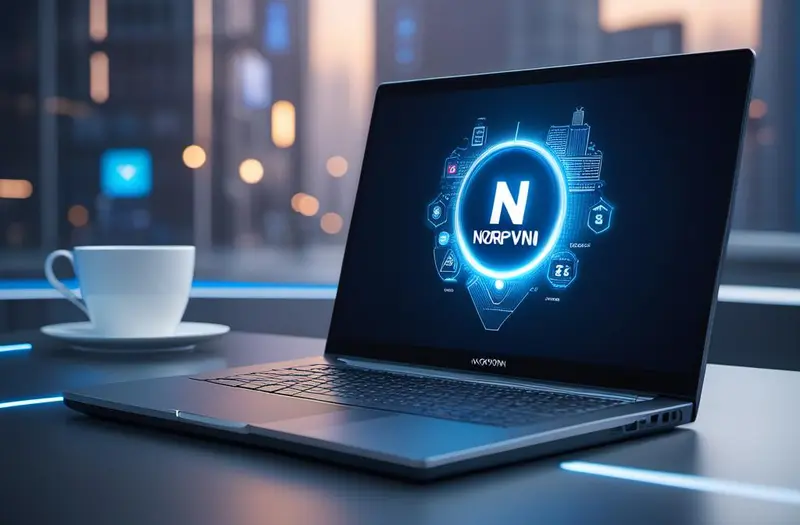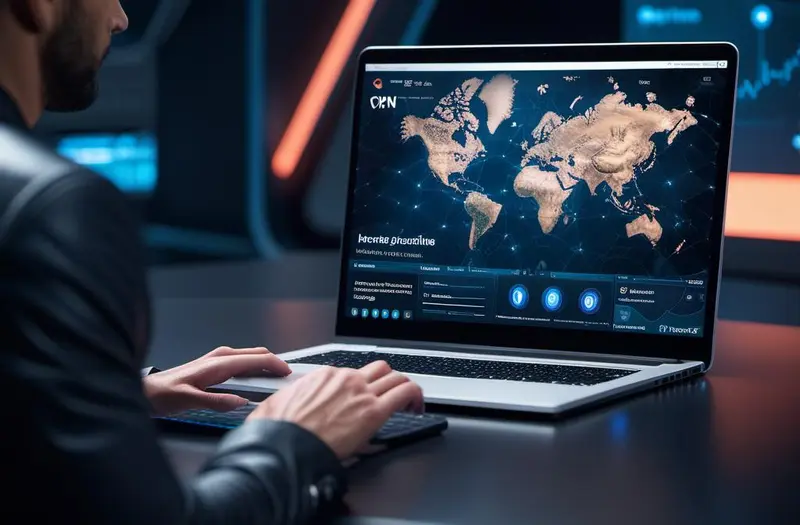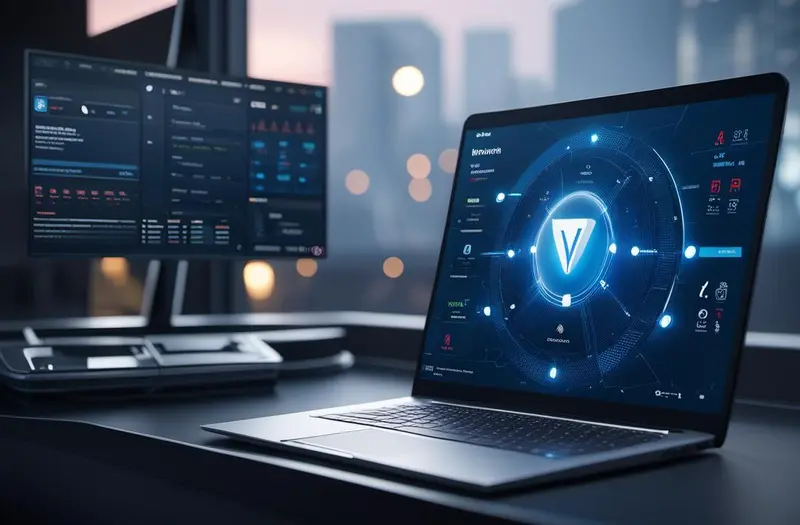vpnpieces.com – Learn how to use VPN only for one application with simple steps, top tools, and perapp configurations to maximize privacy and performance.
Ever wanted to use a VPN for just one app—like a game or messaging tool—without changing your whole device’s connection? The good news is, it’s totally possible. Ready to find out how?
Table of Contents
ToggleWhat Is a VPN and Why Use It for a Single Application?
VPN, or Virtual Private Network, encrypts your internet traffic and routes it through a remote server. While traditionally used for full-device protection, there’s increasing demand to isolate VPN usage to specific applications.
Using a VPN for exclusive app use is beneficial when:
- We want to stream international content from a specific app while using our local internet for other services.
- We’re protecting sensitive data in a finance or work-related app but don’t want slower speeds for gaming or browsing.
- We’re performing split testing or SEO audits from different IPs via one application.
A study by GlobalWebIndex shows that 31% of internet users globally use a VPN weekly, and app-specific setups are gaining popularity due to their flexibility and performance advantages.
Benefits of Using VPN for Specific Applications Only
Isolating VPN to one application brings numerous benefits, especially for those of us who rely heavily on different types of internet traffic.
1. Optimized Speed
When we use VPN for specific application only, non-critical apps bypass the VPN tunnel. That means fewer slowdowns since encrypted traffic is limited.
2. Improved Security Focus
Per-app VPN configuration allows us to protect high-risk or sensitive apps without exposing other less relevant traffic to unnecessary encryption.
3. Targeted Access to Geo-Content
If we want to access content in one country through an app (e.g., BBC iPlayer, Spotify, or WeChat), this method keeps everything else local.
4. Lower Data Consumption
Routing one app through a VPN instead of all data traffic saves bandwidth—especially relevant for mobile users.
How Does Selective VPN Application Routing Work?
Selective VPN connectivity for apps—also called “VPN split tunneling” or “per-app VPN”—works by configuring the VPN client or device OS to route traffic from one app through the encrypted tunnel.
Here’s what happens in a typical selective VPN setup:
| Step | Process |
|---|---|
| 1 | VPN is installed on the device |
| 2 | VPN app or OS detects network requests from specified apps |
| 3 | Only those app requests are encrypted and tunneled |
| 4 | Other apps remain connected via regular ISP |
This allows for app-specific routing based on policy settings in platforms like Android, iOS, Windows, and even some routers.
Read More : Best VPN for Playing Roblox
Which Platforms Support Single App VPN Setup?

Not every system supports VPN application whitelisting natively, but many modern OS and tools do.
Windows
Most VPN apps on Windows offer split tunneling. Some allow app-based rules, while others offer only IP/domain-based routing.
macOS
macOS has limited native per-app VPN support, but third-party apps can fill the gap.
Android
Modern Android supports per-app VPN directly through the system.
iOS
Per-app VPN can be configured through enterprise tools or using apps with MDM (Mobile Device Management) settings.
Linux
Using iptables or tools like firejail with OpenVPN enables powerful routing for single app vpn setup.
Best VPNs with Per-App VPN Configuration Support
Not all VPN services offer robust app-specific routing. Below are top choices for selective VPN routing:
| VPN Service | Supports App-Specific VPN? | Notes |
|---|---|---|
| NordVPN | Yes | Available on Windows and Android |
| ExpressVPN | Partial | Split tunneling by IP/domain |
| ProtonVPN | Yes | Full support on Android |
| Surfshark | Yes | Whitelister feature for apps |
| Windscribe | Yes | Firewall and routing options |
Make sure to check feature compatibility with your OS before subscribing.
How to Configure VPN for a Single Program on Windows
Step-by-Step Guide Using Surfshark or NordVPN
1. Launch VPN App with Split Tunneling
Most premium VPNs like Surfshark offer an “App Whitelister” under advanced settings.
2. Add Application
Click “Add App” or similar, and select the executable you want to route through the VPN.
3. Save and Connect
After saving, enable VPN and verify that only the selected app is routed via encrypted tunnel.
Tip: Use Wireshark or NetLimiter to monitor traffic routing.
How to Use VPN for One App on macOS
Using Third-Party Tools Like Viscosity or Tunnelblick
1. Install VPN with Split Routing
These clients allow manual routing based on IP or subnet.
2. Use Terminal to Identify App Traffic IP
Once the app is running, use netstat to identify external IP endpoints it connects to.
3. Configure Custom Route
Apply routing table rules in VPN config to tunnel only that IP range.
Note: Requires technical proficiency and admin privileges.
Single App VPN Setup on Android

Using Built-In Android VPN Options
1. Go to Settings > Network & Internet > VPN
Select the VPN app you’re using (e.g., ProtonVPN).
2. Tap the Gear Icon and Choose “Per-App VPN”
Enable the app you want to route through the VPN and disable others.
3. Save Settings and Connect
Only the selected app will now use the VPN tunnel.
This native feature is Android 9+ specific.
Isolating VPN to One Application on iOS
Using Enterprise Tools or MDM
iOS restricts consumer-level per-app VPN. However, Apple’s MDM lets businesses assign VPN profiles per app.
Example Setup:
- Use JAMF or Intune MDM
- Assign VPN payload to specific app bundle ID
- Enforce device policy centrally
For regular users, this is limited unless using VPNs like Cisco AnyConnect with enterprise licenses.
Router-Based Per-App VPN Routing
Some advanced routers support VPN routing by device or port, enabling VPN for exclusive app use indirectly.
Example: ASUS Merlin Firmware
- Flash router with ASUS Merlin
- Use Policy-Based Routing to route traffic from app’s port/IP
- Combine with device rules for more granularity
This method is complex but scalable.
VPN App-Specific Settings to Explore
Many VPN apps come with advanced features that support selective tunneling.
Settings to Look For:
- App Whitelisting or Bypass List
- Domain/IP Split Routing
- Firewall Control for Traffic Lockdown
- DNS Leak Prevention
Configure vpn for single program efficiently by exploring these in your chosen VPN app.
Use Cases for Selective VPN Connectivity for Apps
1. Business
Companies route work apps via secure VPN while keeping recreational apps unrestricted.
2. Streaming
Users route Netflix or BBC iPlayer through UK/US servers only, improving speeds elsewhere.
3. Gaming
Gamers avoid lag by routing only the game launcher via VPN while keeping voice chat local.
4. SEO Research
Marketers test geo-location based search results using only Chrome browser through VPN.
Troubleshooting Single App VPN Issues
Common Problems
- VPN not routing the app correctly
- App ignoring VPN tunnel due to DNS leaks
- Connection drops when app changes network states
Solutions
- Reinstall VPN and verify app permissions
- Ensure kill switch is active
- Use a packet sniffer to validate traffic routes
FAQs
Can I restrict VPN to one software on Windows?
Yes, VPNs like NordVPN and Surfshark allow app-level whitelisting directly within their settings panel.
How does VPN split tunneling differ from per-app VPN?
Split tunneling lets you exclude or include apps/IPs, while per-app VPN specifically forces only certain applications through the VPN tunnel.
Is it safe to use VPN for single app only?
Yes. As long as the app is routed securely, the rest of your traffic remains on your regular network without performance impact.
Does using VPN for a single app affect latency?
It might, depending on the app’s server location and your VPN server. Limiting VPN usage can reduce overall system latency.
Can I set up a dedicated VPN for application without rooting my phone?
On Android 9+, yes. Many VPN apps allow per-app routing without root access.
Conclusion
Knowing how to use VPN only for one application gives us powerful control over privacy and efficiency. From Android’s native per-app VPN settings to router-level routing and advanced client features on desktop, this capability transforms the way we engage with security tools.
We’ve explored multiple ways to implement single app VPN setup—each suitable for different skill levels and needs. Whether you’re a power user, a business professional, or just trying to catch that favorite show abroad without slowing everything else down, selective VPN routing is the key.
Key Takeaways
- App-specific VPN routing enhances speed, privacy, and geo-access.
- Top VPNs like Surfshark, ProtonVPN, and NordVPN support selective routing.
- Platforms like Android natively support per-app VPN; others may need 3rd-party tools.
- Router-based and enterprise options offer scalable configurations.
- It’s a flexible, powerful technique to optimize your online experience.
















